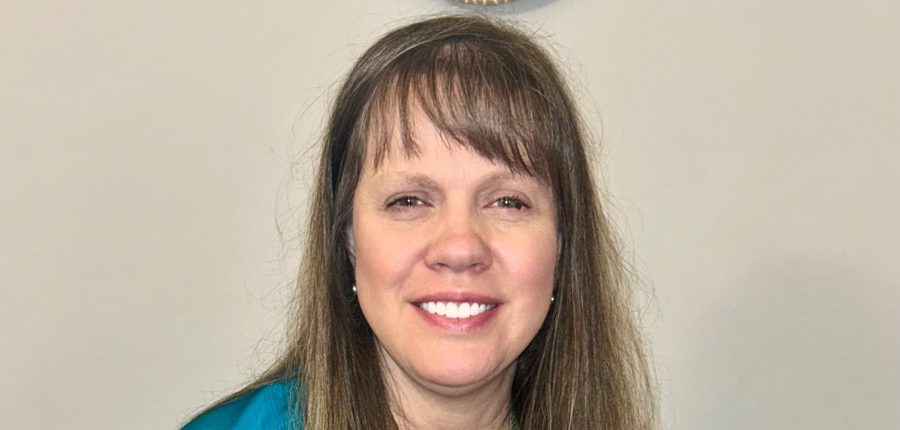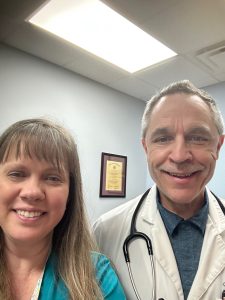Becoming an Advocate for Removing Stigma

About 10 years ago, Angela Stanley started to feel that there was a real need for robust mental health care in her North Carolina community. At the time, Stanley had spent 20 years working as a phlebotomist at Dayspring Family Medicine, a large primary care practice in Eden, N.C., that serves Rockingham County, which borders Virginia.
“We had patients that were having to drive to Greensboro, or Danville, or Roanoke, because telehealth at that time was not a thing,” Stanley said. “They were having to go to great lengths to get therapy or other mental health care, and a lot of them weren’t doing it because they couldn’t afford the gas or to take half a day off.”
The situation was also difficult for local mental health providers, Stanley said. Because of the stigma around mental health care in Rockingham County, it was a tough business environment for those who may have wanted to open a practice. At Dayspring, providers managed behavioral health as best they could, often prescribing medications and referring patients out to specialists. But medications often take weeks to begin working, and specialists often had wait times that long, too. “There was a lot of lost time, when no one was able to touch base to see how patients were doing,” Stanley said.
To do her part toward bringing change, Stanley decided to enroll in a bachelor’s degree program at Liberty University in Lynchburg, Va., majoring in psychology, and then pursue a master’s degree in clinical mental health counseling there. Her focus would be advocacy. She wanted to help remove the stigma. “The more classes I took, the more interested I became,” she said. “It was confirmation that I really needed to do it, because in Rockingham County, we were stuck.”
Stanley was able to complete much of her coursework remotely, and occasionally commuted to Liberty’s campus. She also had the support of her bosses at Dayspring, who restructured her schedule to reduce hours but allowed her to keep her benefits. Still, the process was hard sometimes.
“COVID happened while I was in college and I was still working, so that was very difficult, watching our patients’ mental health decline during that time,” she said. “That drove me even more, though. Instead of feeling like I needed to give up so I could help more during COVID, it made me feel like I needed to dig deeper and help with mental health overall. I wanted there to be a change here.”
Stanley graduated with her master’s degree in clinical mental health counseling in May 2023, just in time to begin working as Dayspring’s Behavioral Health Care Manager (BHCM) in the Collaborative Care Model (CoCM). Dr. Terry Daniel, a specialist in family medicine and a partner at Dayspring, had begun the practice’s process for adopting the model.

Patients were immediately receptive to the model and to be able to talk to a familiar person, Stanley said. “They’ve seen my face, they know who I am, so just being a part of the practice that they’re used to means it feels like home,” she said. “The biggest thing I hear is, ‘I’m so glad you have this here.’”
In addition to a listening ear, Stanley offers patients behavioral health techniques, such as deep breathing exercises, that they are able to use. True to her personal goal, she also acts as an advocate for them within the practice, discussing with other providers whether an increase in medicine is warranted, or whether additional care is needed beyond the CoCM model. “That makes them feel that they are being better taken care of in this office, that their overall health is cared about here.”
Stanley called it “a dream come true” to work in this role, with this model, in her home practice, in her home community. “The patients here are like family to us and knowing that they’re getting what they need is very important to me,” she said.
